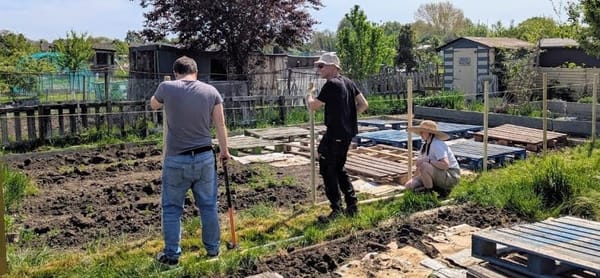Breaking Barriers: Caroline Keep's Journey from Misdiagnosis to Inspiring Educator and Innovator

By Ellise Hollie Hayward, Jill Dando News Disabilities Correspondent
Caroline Keep is an educator and data scientist, and she is currently working on her PhD in digitization in education at the University of Central Lancashire.
She is also a maker (someone who creates—think maker culture and makerspaces!) and one of the founders of Liverpool Makefest, the largest maker festival in the UK.
Over the past ten years, they have helped guide the creation of several other Makefests, working with the Department for Digital, Culture, Media & Sport to make it easy for anyone to start their own!
Caroline still teaches and loves it—most recently, with the BAE/Create Education outreach program, where she has been teaching computer-aided design.
Outside of work, Caroline has a wonderful family, a very spoiled dog named Oddsock, and far too many books and comics that she insists on reading all at once despite rarely finishing any of them!
Caroline is autistic and has ADHD. She also manages two physical conditions—hypermobility disorder and Postural Tachycardia Syndrome with Reflex Anoxic Seizures, which means she tends to fall over a lot!
She broke her nose loads in her teenage years when Caroline struggled to manage her condition, but doesnt tend to blackout much now. She knows how to manage it better, but both come with many challenges to overcome.
The relationship between them is obvious now in the scientific literature.
When Caroline was younger, things were not as clear. Her struggles with falling over and having seizures gradually worsened over time, eventually becoming quite serious. After years of uncertainty, a neurologist finally diagnosed her with what was initially labeled as vasovagal syncope/neurocardiogenic syncope, which later evolved into diagnoses of POTS and hypermobility.
This process took decades, and it was not until her mid-30s that Caroline was also diagnosed with ADHD and autism.
The impact of misdiagnosis and late diagnosis was devastating. Over time, she came to believe she was just “broken.”
Receiving a proper diagnosis brought clarity, it helped Caroline understand that there was nothing inherently wrong with her and gave her the tools to manage her ADHD and physical conditions better.
However, the anxiety built up over the years has left me deeply apprehensive about seeing doctors. There is nothing more disheartening than having a seizure and stopping breathing.
One of the most valuable lessons Caroline learned in her youth was to listen to her body and respect its limits, rather than pushing it beyond what it can handle.
This set her up for success later, Caroline does things at her own pace and in a way she can manage.
Caroline never planned to be a teacher! She was working in engineering when she got invited to help teach engineering skills to university students.
That experience gave her the teaching bug, but she quickly realized she wanted to reach kids much earlier to help them understand their career choice! Many of her friends thought Caroline was crazy to leave a successful engineering career to become a teacher, but she knew she had much to offer.
In 2018, Caroline set up the first school-based makerspace in the UK and has since established and advised on many more. Along the way, she has been honored with several awards for her digital, engineering, and STEM education work.
Recently, Caroline has circled back to engineering, exploring how to improve education from the EdTech side, having already earned her stripes in teaching.
Caroline wanted to give back to the great teachers she had in her life and honestly, just likes kids. They can be straightforward, honest, and kind, but also challenging and tricky in which she sees a lot of herself.
Moving back into engineering was a tricky choice, but Caroline still finds herself in the classroom every other week, so it hardly feels like she left. Teaching will always be a part of who she is.
If there is one thing Caroline would want anyone to take away, it is this: Don’t let anyone tell you what you can’t do. I say 'can't do" as it always starts with "she can't, they can't, he can't, you can't..... forget the can't!
People will set the bar low for you; if you accept it, it will stay there. Set your own bars, aim higher, and prove to yourself what is possible. It might take a long time, but anything worth doing always does!
For more stories by Ellise and Jill Dando News click here





